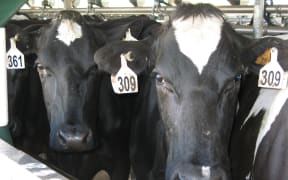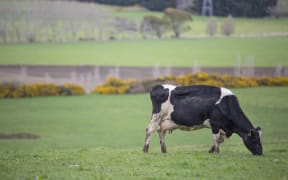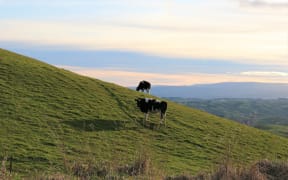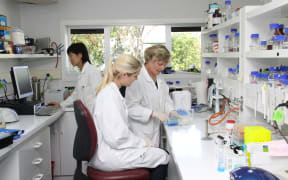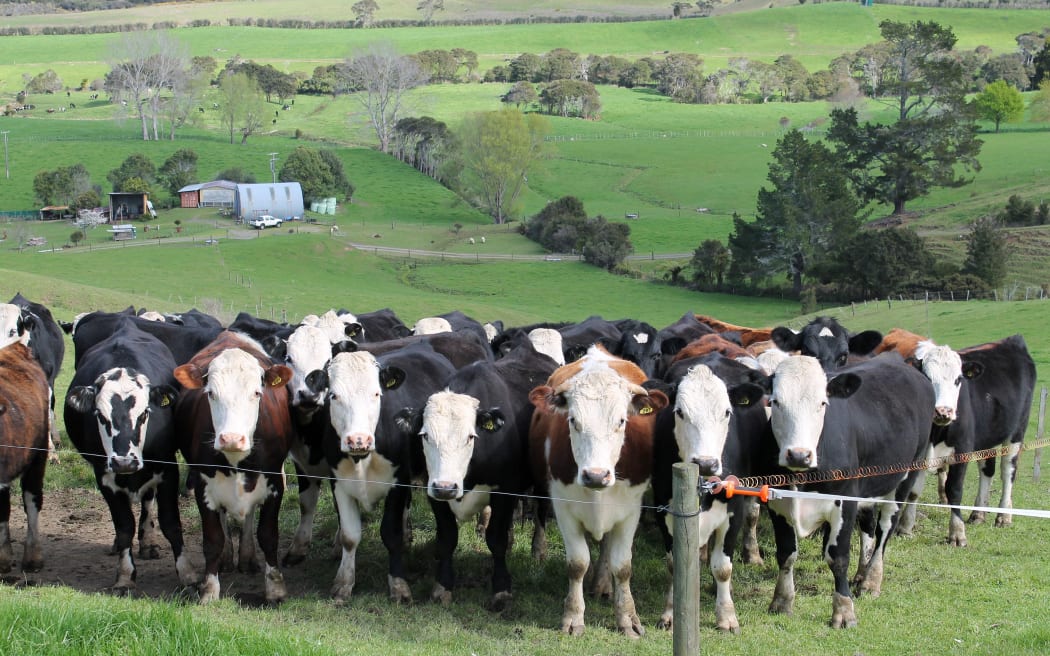
Farmers may soon be able to use tools to improve genetics to help reduce emissions from livestock. Photo: RNZ / Susan Murray
One of New Zealand agriculture's largest private investors in research and development says low-methane dairy cow genetics could be in-market by 2026.
Better genetics are being touted as one in a handful of tools farmers will soon be able to use to reduce emissions from livestock on-farm - including by politicians this general election.
In its latest Sustainability Report, artificial breeding co-operative LIC said its work supported farmers to reduce their on-farm emissions through low-methane elite genetics, which should be on the market in several years.
Chief executive David Chin said these genetics would be able to be accessed by 2026.
"There's lots to be gained in terms of having a more efficient cow in the national herd," Chin said.
"The good thing for farmers is that as we breed a more efficient cow, they [are] just more profitable to run as well. So you get to have a win-win situation, the farmer can be more profitable, but they can have a more sustainable dairy operation," he said.
"The methane research is really exciting, and then the other part of the research that we're undertaking is around heat tolerance. And this is really a bit of an adaptation strategy."
Breeding low-methane cows which could better tolerate warmer conditions would be key for farmers in the coming years, Chin said.
"By 2030/2040 things will start heating up, climate-wise, and it will be important to have a high performance dairy cow that can still be very productive in slightly hotter weather. And so we've got a heat tolerance research programme underway, looking at heat tolerant genes in dairy cows, and all things going well that should come online around 2029/2030."
The business has reduced its carbon emissions by 12.7 percent since its baseline reading taken in 2019 - but the post-Covid uplift of air travel in 2022 to 2023 saw its biogenic, or man-made, emissions rise 9 percent off that same baseline.
It has invested $18.6 million into research and development over the past year, including its methane and heat tolerance programmes.
